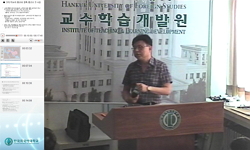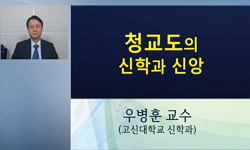주네브 종교개혁 과정에서 1555년의 폭동과 이로 인한 페랭파의 몰락은 쉽게 설명하기 어려운 사건이다. 칼뱅의 지도 아래 확고한 종교개혁의 중심지가 된 주네브에는 1550년대부터 종교적 이...
http://chineseinput.net/에서 pinyin(병음)방식으로 중국어를 변환할 수 있습니다.
변환된 중국어를 복사하여 사용하시면 됩니다.
- 中文 을 입력하시려면 zhongwen을 입력하시고 space를누르시면됩니다.
- 北京 을 입력하시려면 beijing을 입력하시고 space를 누르시면 됩니다.
https://www.riss.kr/link?id=A109091977
-
저자
박효근 (세종대학교)
- 발행기관
- 학술지명
- 권호사항
-
발행연도
2024
-
작성언어
Korean
-
주제어
Geneva ; Reformation ; Perrinists ; Calvinists ; Xenophobia ; 주네브 ; 종교개혁 ; 페랭파 ; 칼뱅파 ; 제노포비아
-
등재정보
KCI등재
-
자료형태
학술저널
-
수록면
48-75(28쪽)
- DOI식별코드
- 제공처
-
0
상세조회 -
0
다운로드
부가정보
국문 초록 (Abstract)
주네브 종교개혁 과정에서 1555년의 폭동과 이로 인한 페랭파의 몰락은 쉽게 설명하기 어려운 사건이다. 칼뱅의 지도 아래 확고한 종교개혁의 중심지가 된 주네브에는 1550년대부터 종교적 이유로 망명을 선택한 유럽 전역의 난민들이 모여들었고, 이로 인해 주네브 거주민들의 거의 절반에 해당하는 이주민들이 도시에 유입되었다. 몰려든 이주민들로 인해 주네브 거주민들의 감정적 반감과 경제적 부담이 상승하면서, 당시 주네브에서는 제노포비아 현상이라 할 만한 외국인혐오가 만연하였다. 이런 상황임에도 불구하고 토박이들의 기득권을 옹호하고 이주민들에 대한 반감을 자극하던 페랭파는 1555년 선거에서 패배하였고, 그 이후 일어난 폭동의 주동자로 몰려 주네브에서 추방당해 버린다. 이를 어떻게 설명할 수 있을 것인가? 본 논문은 이에 대한 설득력 있는 대답을 내놓기 위한 하나의 시도이다. 이를 위해 페랭파는 어떻게 결성되었는지, 그리고 1550년대 주네브의 제노포비아는 과연 페랭파의 정치적 득세를 이끌 배경으로 작용했는지 살펴보았다. 필자가 보기에 페랭파는 자신들을 토박이 세력의 대표로 인식시키는 데 실패했고, 오히려 폐쇄적이고 특권의식에 가득찬 벌족으로 몰리며 선거에서 패배하게 되었다. 설교와 목회, 교리문답과 치리회 소환 등을 통해 주네브의 소통망을 장악하고 있던 칼뱅파는 페랭파의 이미지를 이렇게 재구성하는 데 큰 역할을 담당했다. 나아가 주네브에 이주한 난민들은 상당한 기술력과 자본을 갖춘 전문가들이었기에, 축출한 페랭파의 빈 자리를 충분히 메울 수 있었다. 따라서 1555년 페랭파의 몰락과 칼뱅파의 승리는 칼뱅파가 내세운 것처럼 종교적 차원으로 해석되기보다, 파벌 사이의 갈등과 대안 세력의 존재라는 정치적 차원으로 해석하는 것이 바람직할 것이다.
다국어 초록 (Multilingual Abstract)
The riots of 1555 and the subsequent fall of the Perrinsts in the course of the Reformation of Geneva are hard to explain. Having become an established center of the Reformation under the leadership of Calvin, the city had been hosting refugees from a...
The riots of 1555 and the subsequent fall of the Perrinsts in the course of the Reformation of Geneva are hard to explain. Having become an established center of the Reformation under the leadership of Calvin, the city had been hosting refugees from across Europe seeking asylum on religious grounds since the 1550s, bringing nearly half of the city's inhabitants into the city. The influx of migrants increased the emotional antipathy and economic strain on the city's residents, leading to a widespread xenophobia in the city. Despite this, Perrinsts who defended the interests of the natives and stirred up resentment against immigrants, was defeated in the 1555 elections and was accused of masterminding the riots that followed, leading to his expulsion from the city. This paper is an attempt to provide a convincing answer to the question: how can we explain this situation? To do so, I examine how the Perrinsts Party was formed and whether the xenophobia of the 1550s in Geneva was indeed the backdrop for its political rise. In my view, the Perrins failed to present themselves as representatives of the natives of Geneva, and portrated rather as closed-minded and privileged bees, which led to their electoral defeat. The Calvinists, who dominated the communication networks of Genava through their preaching, pastoring, and catechisms, played a large role in this reconstruction of this negative image of the Perrinsts.. Furthermore, the refugees who arrived in Geneva were professionals with considerable skills and capital, and they were able to fill the void left by the ousted Perrinsts. Therefore, the fall of the Perrinsts and the victory of the Calvinists in 1555 should not be interpreted as religious, as the Calvinists claimed, but rather as political: a conflict between factions and the emergence of an alternative power.
동일학술지(권/호) 다른 논문
-
문화적 차이로 인한 갈등 해결 방법으로서의 소셜 미디어 활용 사례 - 대구 이슬람사원 갈등을 중심으로
- 이주사학회
- 홍상현
- 2024
- KCI등재
-
다양한 사회적 경계와 흑인의 인종적 정체성: 피터 잭슨(Peter Jackson)의 복합적 정체성을 중심으로
- 이주사학회
- 김정욱
- 2024
- KCI등재
-
- 이주사학회
- 김용우
- 2024
- KCI등재
-
초등학교 어린이의 다문화 수용성 증진을 위한 포용적 다문화 교육 설계 방향 탐색
- 이주사학회
- 김현주
- 2024
- KCI등재





 KCI
KCI DBpia
DBpia




